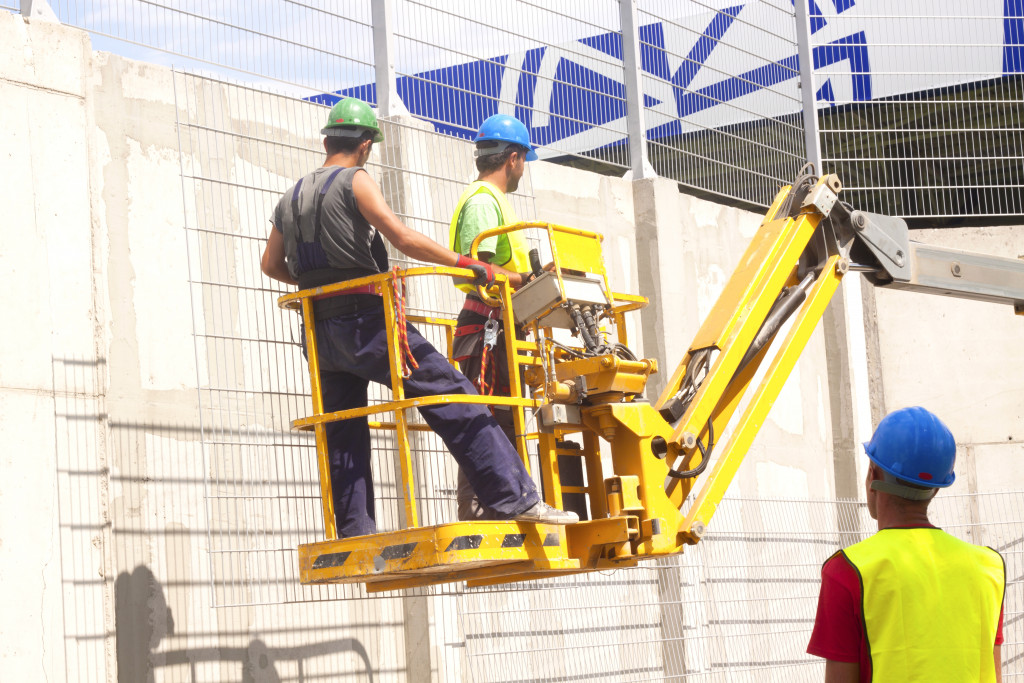- Continuous learning through education and certifications is essential for career advancement in construction.
- Building a strong network with industry professionals can lead to job opportunities and guidance.
- Soft skills such as communication, leadership, and problem-solving are crucial in a fast-paced industry like construction.
- Documenting and showcasing your achievements can boost your confidence and make you stand out to potential employers.
- Securing necessary certifications can open doors to better employment opportunities.
In the bustling construction world, navigating your career pathway requires more than just hard work. Your journey towards achieving professional growth and securing a significant position in the industry necessitates strategic planning and continuous development. As you immerse yourself in this dynamic field, the following tips will guide you to accelerate your career advancement effectively.
1. Pursue Continuous Learning
Investing in your education is fundamental to enhancing your construction career. The industry constantly evolves, with emerging technologies and methodologies reshaping traditional practices. Engage in continuous learning by enrolling in relevant courses, attending workshops, and participating in webinars and conferences. This commitment broadens your knowledge base and keeps you updated with the latest trends and best construction practices.
In addition, consider obtaining certifications that validate your skills and expertise. Recognized credentials improve your marketability and provide you with a competitive edge. They reflect your dedication to professional development and your capability to take on more challenging roles and responsibilities.
2. Network with Industry Professionals

Networking is an invaluable tool for career development. Establish connections with seasoned professionals, mentors, and peers in the construction industry. These relationships allow you to learn from their experiences, gain insights, and receive guidance on navigating career challenges. Attend industry events, join professional associations, and participate in community projects to expand your network.
Furthermore, a strong network opens doors to potential job opportunities. Your connections can recommend you for positions, endorse your skills, and introduce you to influential individuals in the industry. Being proactive in building and maintaining relationships fosters your professional growth and enhances your reputation in the field.
3. Develop Your Soft Skills
While technical skills are crucial, soft skills play a significant role in advancing your construction career.
Here are some tips on how to develop your soft skills:
Effective Communication Skills
Communication is a key component of any successful construction project. As a construction professional, you will interact with various stakeholders such as clients, contractors, and vendors. Therefore, communicating effectively is crucial in building relationships and ensuring that projects run smoothly.
To improve your communication skills, consider taking courses on public speaking or effective communication. These programs can help you learn how to convey your ideas clearly and confidently verbally and in writing. Additionally, actively listening to others is an essential part of effective communication. Respond to what others say, ask clarifying questions, and provide constructive feedback.
Leadership Skills
Effective leadership is crucial for overseeing construction projects from start to finish. As a leader, you must motivate and inspire your team, delegate tasks efficiently, and make difficult decisions when needed. Developing leadership skills takes time and practice, but it is achievable.
Start by taking on small leadership roles in your current projects or volunteering for leadership positions in professional organizations. This will provide hands-on experience and allow you to work on different facets of leadership, such as communication, problem-solving, and teamwork.
Problem-Solving Skills
Construction professionals encounter unexpected challenges throughout a project. Strong problem-solving skills will help you tackle these issues efficiently and keep your projects on track. To improve your problem-solving abilities, practice thinking critically and analyzing situations objectively. Seek input from other team members for diverse perspectives.
You can also participate in workshops or training programs on problem-solving techniques and strategies. These can help you develop a systematic approach to identifying and resolving issues, making you a valuable asset to your team.
Personal Development

Soft skills are not just limited to communication, leadership, and problem-solving. Other essential skills include time management, adaptability, teamwork, and resilience. Invest in your personal development by attending workshops, seminars, and conferences in these areas. You can also seek mentorship from experienced professionals who provide valuable insights and guidance.
4. Showcase Your Achievements
Your accomplishments are a testament to your capabilities and contributions to the industry. Document your successes, no matter how small, and showcase them on your professional profile and resume. This practice boosts your confidence and makes you stand out to employers and colleagues. Your achievements demonstrate your competence, commitment, and value to the construction field.
Create a portfolio that highlights your completed projects, certifications, and recognitions. This compilation serves as tangible proof of your skills and experiences, making negotiating promotions, salary increments, and new job opportunities easier. Be proud of your accomplishments and let them pave the way for your career progression.
5. Secure Necessary Certifications
In construction, certifications can substantially boost your credibility and marketability. While experience is vital, having recognized certifications can provide a competitive edge. For instance, having a CSCS card is almost mandatory for many construction roles. If you haven’t gotten yours yet, take the necessary steps to download the form for obtaining a professional CSCS card. This card ensures you are well-trained and vouches for your professional expertise.
A CSCS card ensures you have completed the health and safety training required for construction roles. It also showcases your commitment to maintaining high standards in the industry, which employers highly value.
Final Words
Elevating your career in construction requires a blend of education, networking, skill development, and certification. With dedication, resilience, and a strategic approach, you can climb the professional ladder and carve a niche in this vibrant and rewarding sector.
Each step you take towards improvement and growth benefits your career and contributes to building stronger and more efficient construction practices globally.





